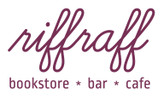Poetry. Latino/Latina Studies. Women's Studies. "How do we trace shifts of home or syllable, the history of becoming in language? We show what's passed on with the mother-milk, the blood-words, pushed from the body onto the page. That's what these poems do, spilling beautifully, forming in the mouth of the reader. This is the 'ark built to survive': our things built with words circling, mother-to-daughter-to- mother-to-daughter." -- Eleni Sikelianos
"Here are poems that reckon with the histories of family, generations, language and love: how our tongues are mothered or not, how we are given to and abandoned. Alcala writes, 'What good is it to erect/ of absence/ a word?' Tough and gorgeous, smart and touching, these poems are offerings that tie, untie, unite, entice." -- Hoa Nguyen
"Rosa Alcala's new poemario MYOTHER TONGUE begins in the archives of what has yet to be written. She writes with precision and dynamism from the borders between death (of a mother) and birth (of a daughter). What a body produces, and what produces a body: labor, trauma, memory, sacrifice, pain, danger, and language formed both on the tongue and in the culture and the spaces between what can be said and what is missing, the linguistic and existential problem of not having the right words. The darknesses in Alcala's work emerge from what happens when we don't see ourselves in the languages that both form and destroy us as we labor in this 'dream called money.' Alcala is a {un}documentarian of the highest order, a {un}documentarian of what history and memory try to erase. Her poems are urgent, demanding and haunting." -- Daniel Borzutzky
"Here are poems that reckon with the histories of family, generations, language and love: how our tongues are mothered or not, how we are given to and abandoned. Alcala writes, 'What good is it to erect/ of absence/ a word?' Tough and gorgeous, smart and touching, these poems are offerings that tie, untie, unite, entice." -- Hoa Nguyen
"Rosa Alcala's new poemario MYOTHER TONGUE begins in the archives of what has yet to be written. She writes with precision and dynamism from the borders between death (of a mother) and birth (of a daughter). What a body produces, and what produces a body: labor, trauma, memory, sacrifice, pain, danger, and language formed both on the tongue and in the culture and the spaces between what can be said and what is missing, the linguistic and existential problem of not having the right words. The darknesses in Alcala's work emerge from what happens when we don't see ourselves in the languages that both form and destroy us as we labor in this 'dream called money.' Alcala is a {un}documentarian of the highest order, a {un}documentarian of what history and memory try to erase. Her poems are urgent, demanding and haunting." -- Daniel Borzutzky






